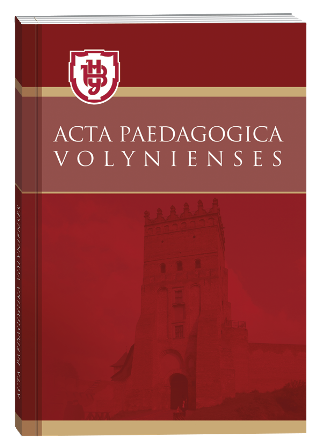INTEGRATIVE APPROACH TO TEACHING ENGLISH FOR THE SPECIFIC PURPOSES IN THE POLYCULTURED UNIVERSITY GROUPS
DOI:
https://doi.org/10.32782/apv/2021.6.22Keywords:
integrative approach, English for the specific purposes (ESP), polycultured group, teaching technologyAbstract
Teaching English for the specific purposes (ESP) in the polycultured University groups is quite challenging due to the fact that learners from different countries are characterized both by peculiar mentality features, national traditions, general level of background education as well as the level of reading, writing, listening and speaking in English obtained in the secondary educational institutions. Top quality higher education being a reliable bridge to a good career, many foreign citizens enter Ukrainian Universities, and in this respect Odesa National I.I.Mechnikov University has ranked a leading place within several decades. The consequence of the University’s prestige is the appearance of numerous polycultured academic students’ groups, the students of which need both to fulfill the programme’s requirements, be well adopted in the learning environment and feel at ease in case they communicate or share the professional information via English. The aim of the investigations included the analysis of the notion polycultured group; defining the peculiarities of the learners’ behavior on the psycholinguistic and communicative level; suggesting the appropriate steps to involve all the students into the process of acquiring proficiency-oriented knowledge via English. The authors pioneered a special integrative approach to ESP, discussed several forms of work in small teams and big groups; demonstrated the samples of tasks, which were backed by the authentic articles reading; revealed the merits of the integrative principles of the ESP teaching, the latter being implemented at the departments of the University and proved to be efficient. The perspectives of the work are seen in incorporating the lectures of the English speakers into the ESP lessons so that to develop the students’ lagging behind listening skills.
References
Добровольська Л.В. (1992) Методика навчання читання літератури за фахом на основі серії градуйованих за труднощами текстів: дис. … канд. пед. наук: 13.00.02. Київ. 245 с.
Добровольська Д., Добровольська Л. (2020) Технологія навчання іноземної мови в разі контактних та дистанційних форм роботи // Актуальні питання гуманітарних наук. Міжвуз. збірник наук. праць молодих вчених ДДПУ ім. І. Франка. Вип.31. Дрогобич: Гельветика. С.139–143
Зимняя И.А., Земцова Е.В. (2008) Интегративный подход к оценке единой социально-профессиональной компетентности выпускников вузов // Высшее образование сегодня. № 5. C. 14–19.
Leonard J. (2012) Integrative Learning: a Grounded Theory// Issues in Integrative Studies, № 30. Pp. 48–74.
Rao P.S (2019) The Role of English as a global Language// Research Journal of English. Vol.4. Issue 1. Pp. 59–66.
A Rewarding Challenge: How the multiplicity of languages could strengthen Europe (2008) Proposals from the Group of Intellectuals for Intercultural Dialogue set up at the initiative of the European Commission. Brussels. 30 p.
Ryan, P. (2015) An Integrative Approach to English Language Teaching// Issues in Interdisciplinary Studies. № 33. Pp. 181–209.
Євроосвіта: центр міжнародних проектів. http://www.euroosvita.net/index.php/?category=1&id=6556&fbclid=IwAR1w4g8vLg5-9zdZ3Lbxc4hhyEvgvS0_QU5AdsFlW-brx_iz3YtdbYxKjQg
http://www/researchgate/net3342
http://www.tnu.in.ua>file 1326575]







